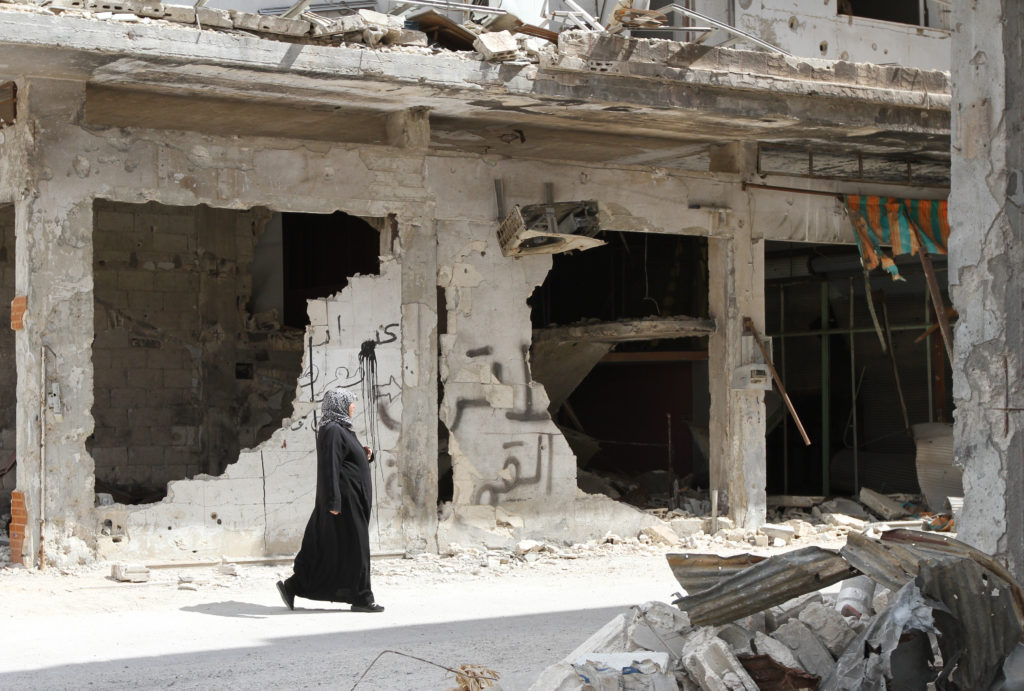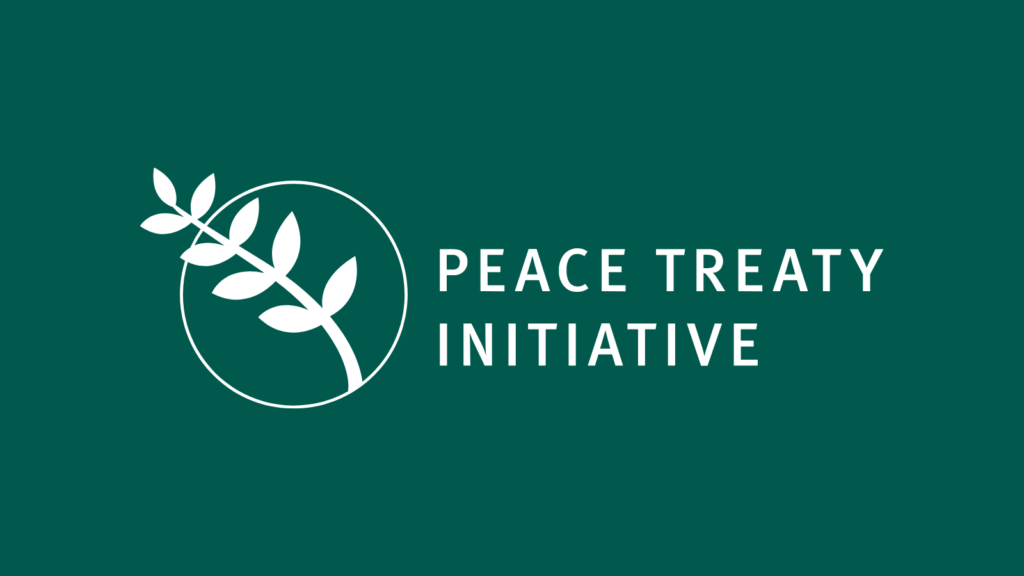Public Commentary / 23 March 2022
Interview with Mark Freeman in Libertatea: Negotiations between Russia and Ukraine

Libertatea: We are all looking at the war in Ukraine with concern and at the beginning of every day we all think maybe today is the day. It might be a naive way of looking at things. That’s why I ask you to give us some insights about the peace negotiation to better understand them.
– The leverage that the parties have in the negotiation room is to a very large degree a result or a function of the leverage that they have on the actual battlefield. Leverage means advantage, basically. What happens in the negotiation room is largely going to be a function of or result of the perceived amount of leverage that each side thinks it has against the other. There are some people who believe that – and I include myself within this – not every moment is a ripe moment for a negotiation, at least for a formal negotiation. Because when you’re negotiating with your enemy or adversary in a conflict, that also has political costs and benefits, and so even the choice to formally sit down with your adversary to negotiate could have some significant costs for one or both of the sides. If you don’t have enough leverage to negotiate at least as an equal or with some level of advantage, then you shouldn’t necessarily negotiate. But leverage is not a static thing. The amount of leverage parties have shifts, it fluctuates, it goes up, it goes down.
– So for us it might be a good sign that we see now that Ukraine and Russia is at the table talking about peace.
– It might be. It’s possible, again, that both parties fear that the other is not there in good faith, and both parties might be right about that. But the fact that there is a negotiation at all is something that I think we could all celebrate at some level because wars are rarely won or lost purely in military terms, but end up being resolved around the negotiation table. So it is important that this diplomatic effort exists.
Primarily, the ability of the parties to reach an agreement is summarised with a very well-known expression called a BATNA, which stands for ‘Best Alternative To a Negotiated Agreement’. If one of the parties feels that it can secure its interests better by not negotiating, then it won’t negotiate, or at least it won’t negotiate in good faith. You need a situation in which both parties genuinely perceive that the best pathway to achieve their interests is through negotiation, and if even just one of the parties doesn’t genuinely believe that its best option is a negotiated solution, then it’s extremely unlikely that there will be a negotiated agreement.
– We’ve seen so far that the two parties met at the Belorussian border, in Turkey, Israel offered as well. How are these meeting places usually chosen?
– There are a set of questions within the broad subject of peace negotiation, that’s called ‘process design’. Process design includes who are the actors involved, what are the rules of procedure, where do the talks take place, a whole range of questions. And location is important in this sense.
There’s been some different locations used up to now, and different governments offering a sort of facilitation. And that is common, but it’s not always the case. Sometimes parties just negotiate with each other directly in a place that they choose without any external facilitation or mediation. But I think in this case it was unlikely that the parties would do so. The fact that, in particular Turkey and Israel, to mention two of the examples, have stepped forward to offer themselves in the hope that they would be seen as a legitimate facilitator by both sides, is more important than the location. It’s mostly a question of their perceived impartiality or legitimacy in the eyes of the conflict parties, but also of their influence.
What is generally the atmosphere at the peace negotiations and how do you have to prepare for them?
– You can be sure the atmosphere is very, very tense. It’s probably also very formal. There’s a certain set of rituals that everyone seems to be observing, like shaking hands and having well organized delegations.
There are different approaches to these sorts of things: there are some people who believe that in peace negotiations, the negotiators for each side need to develop a sort of relationship of interpersonal trust. Other people believe that interpersonal trust doesn’t really matter, in fact, it could be better that they don’t, they don’t need to become friends, or even to trust each other fully.
So there are different schools of thought. In the Minsk process there were, I think, over 70 cycles of talks, so there was a lot of contact between Russian diplomats and lawyers, and Ukrainian diplomats and lawyers in multiple spaces.
This current negotiation that’s taking place-it’s not like it’s taking place between parties that aren’t familiar with each other in a negotiation setting. Probably a lot of them know each other directly. I would like to believe that’s a good thing, in the sense that no one is going into it naively, no one is going into it without any prior interaction with the other side.
These many years of past interaction also allow the parties to know better their own limits, their own red lines.
– I’ve noticed something, that no woman attended from no site. Is this something common? The wars remain a man’s ground, but the peace negotiations as well?
– Yes, that is true. I mean, there have been a lot of efforts over the last 20 years to see women in peace mediation roles. But it still is a very male-dominated sphere of practice. And so I would say that seeing very significant or even just equal participation by women, whether it’s within the delegations themselves, or as part of a peace mediation team or facilitator team, is very uncommon. Women are almost always in the minority, and sometimes indeed they’re not even present at all. So, there’s still a lot of work to do on that.
– Do you think that the presence of a woman could change things to better?
– I personally think yes. Ultimately, the more opportunity women have to play these really critical roles inside of peace talks, the better evidence we will all have about what difference they can make. But the evidence is very limited because the practice is so infrequent. Again, there are obviously some exceptions, but I would say it’s not a trend, to me at least, where women are playing an increasing role in peace talks.
– We’ve seen the declaration of Joe Biden about Vladimir Putin being a war criminal. This remark was considered unacceptable by the Russian President. Can this public verbal attacks change things at the peace talks table?
– Yes, it could, although you know the US is not in the peace talks. So, in that sense it becomes another part of the outside realities that then can have an impact on the talks themselves. There has been some extreme language use. President Putin is reportedly very upset about being called a war criminal, but it is also the case that he used terminology about Ukrainians that equated groups of them to Nazis.
– It cannot be a fortune teller job, but are there any clues that a conflict is getting closer to an end?
– This particular conflict has only been going on for a few weeks. I do think that with every new day that passes where there is more death, more destruction, and more anger, the possibilities of a resolution in the short- or mid-term become more and more remote.
The existence of a negotiation in parallel with the existence of the war is good because it’s possible that something the parties presumed to be impossible in terms of a consensus, that if they are talking with each other, they might discover that there is a zone of possible agreement.
There are some signs that according to statements by the parties themselves, that they have identified some elements of what’s called a “zone of possible agreement”.
There are some encouraging signs, but a comprehensive solution seems to me unlikely in the short term. What I think personally, and might be more realistic is something we call a framework agreement. Even the Minsk agreements themselves are actually very short documents, just a couple of pages long. Most of the details are left to the bodies and the organs and committees and working groups that will be responsible for defining the details of implementation. That’s the kind of agreement I could imagine here; it may just be a few pages that basically reflects a resolution of the main concerns of the parties. Or perhaps there could be interim agreements. There have been at least some of those on paper, some agreements about things like humanitarian corridors that wouldn’t have happened in the absence of a negotiation.
The negotiation is like another room of the war, it’s where the parties in principle are trying to identify a Zone Of Possible Agreement. It’s possible today that the Ukrainian side of the negotiation feels that it is in a stronger position, or maybe Russia feels that way today and tomorrow that will change. It’s a constantly moving picture.
We often, in our work, emphasize the ‘how’ of peace negotiations rather than the ‘what’ of the agreement itself. If the ‘how’ of the negotiation isn’t well designed, it’s just very, very unlikely that the parties could reach an agreement.
– The end of the war means also the beginning of a transitional process that is not easy at all. So what will happen after the ceasefire?
– I think in the particular context of this particular conflict, what we could maybe use as a benchmark for what to expect is the Minsk process itself. There was a ceasefire agreed, and it’s already been more than seven years since there were a set of commitments made by both parties.
If you look at the Minsk agreements, I think that gives you a sense of what it might look like in terms of structure, and then it’s just going to come down to implementation. I don’t mean that Minsk is a good benchmark. I don’t mean that the scale of what took place in the Donbas in 2014 is in any way comparable to what’s taking place right now. And just in terms of the hostilities, in terms of casualties, in terms of geopolitical significance, this is a whole other level.
But I think at the same time Minsk is relevant, as it’s the most recent experience of negotiation and implementation that these two parties have had with each other.
– You have said it before that we are already in an era of new and growing kind of armed conflicts like climate wars, cyber war, and nowadays the fighting no longer occurs on a clearly marked battlefield. That’s very scary. Can we do anything about it?
– Our institute has actually developed a large global initiative to create a multilateral treaty to incentivize conflict prevention and conflict resolution. International law generally is quite unhelpful in terms of the incentives that it offers to parties to choose the path of negotiation rather than the path of confrontation.
Sometimes what could happen out of a conflict of this magnitude, sometimes there’s a reorganization of the peace architecture or the security architecture in a region, or even at a global level. Most famously, this occurred at the end of the Second World War, with the entire UN system and the Geneva Conventions on the laws of war.
– We all say that peace is something that we begin to value for real when we lose it. What does peace mean to you?
– Peace means to me the absence of violence, or minimally, at least the absence of mass violence. I’m trained as a human rights lawyer, so I partly think of it in terms of rights. Peace means to me a state of society in which the right to life (existence) is the supreme right for humans.
I could quote Johan Galtung, who famously distinguished between negative peace and positive peace. Negative peace is the absence of violent conflict, positive peace is more than the absence of violent conflict- is also the full implementation of human rights, the full self-realization or self-determination of societies, equality, etc. But in a time like this, I would accept negative peace, meaning the absence of violent conflict.
If we don’t have that, then we don’t have very much.
Originally published in Romanian in Libertatea.
You may also be interested in

Public Commentary
Getting back to what matters: Victim voices and the making of international law

Public Commentary
Negotiating amnesties, peace and justice: a new path

Public Commentary
Here is a way for international law to better help end conflicts


